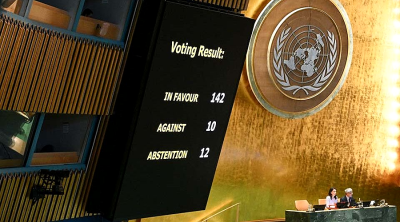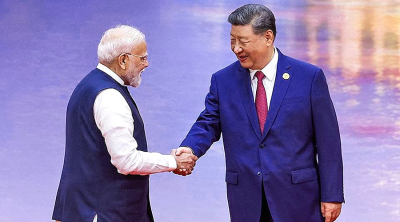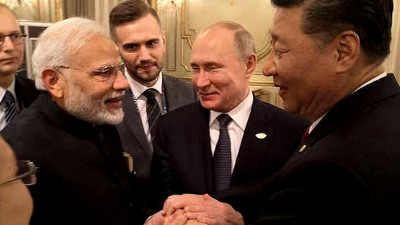NEW DELHI: India has banned wheat exports, sending bushel prices to record highs and drawing criticism from the Group of Seven worried about protectionism as inflation soars in the wake of the Ukraine war.
What did India announce?
The world’s second-largest producer of wheat said that traders could only enter into new export deals with express government approval.
Still permitted are requests approved by New Delhi from other governments reeling from record high prices “to meet their food security needs”, according to an order dated May 13.
What was the policy before?
India previously said it was ready to help fill some of the supply shortages caused by the February invasion of Ukraine, which had accounted for 12 percent of global exports.
It planned to increase exports this financial year to 10 million tons from seven million tons.
“Our farmers have ensured that not just India but the whole world is taken care of,” Commerce and Industry Minister Piyush Goyal had said in April.
Only last week India said it would send delegations to Egypt, Turkey and elsewhere to discuss boosting wheat exports. It was unclear whether these visits would now go ahead.
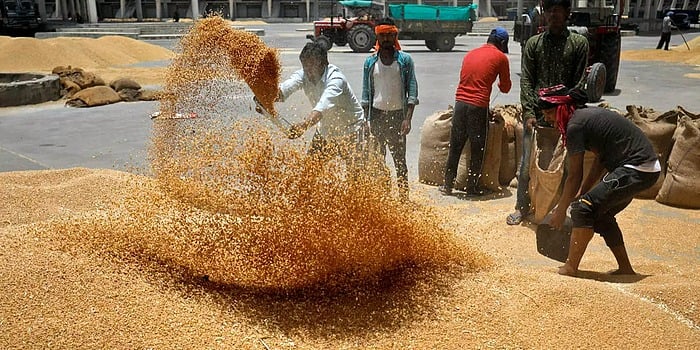
Why did India do this?
The reasons given were runaway inflation and food security in the poor nation of 1.4 billion people.
Some parts of India, Commerce Secretary BVR Subrahmanyam said on Sunday, have seen prices in wheat and flour jump 20 to 40 percent in recent weeks.
Because of the sharp rise in global prices, some farmers were selling to traders and not to the government.
This got the government worried about its buffer stock of almost 20 million tons — depleted by the pandemic — needed for handouts to millions of poor families and to avert any possible famine.
“We don’t want wheat to go in an unregulated manner where (wheat) may either get hoarded and is not used for the purpose which we are hoping it will be used for — which is serving the food requirements of vulnerable nations and vulnerable people,” Subrahmanyam said.
What about the heatwave?
India recorded its warmest March on record — blamed on climate change — and in recent weeks has seen a scorching heatwave with temperatures upwards of 45 degrees Celsius.
This hit farmers in wheat-producing northern India, prompting the government to predict output would fall at least five percent this year from 109 million tons in 2021
What was the reaction?
G7 agriculture ministers meeting in Germany said that such measures “would worsen the crisis” of rising commodity prices.
“If everyone starts to impose export restrictions or to close markets, that would worsen the crisis,” German Agriculture Minister Cem Ozdemir said.
Wheat prices surged to a new record high on Monday, jumping to 435 euros ($453) per ton as the European market opened.
Is India a big wheat exporter?
India is a marginal player globally and produces mostly for domestic consumption, and almost half its exports last year went to Bangladesh.
India’s previously predicted exports of 10 million tons compares with a 53 million tons of wheat and meslin (a mixture of wheat and rye) exported by Russia and Ukraine in 2021, according to the UN Food and Agriculture Organization (FAO).
Its exports have been limited over quality concerns and World Trade Organization rules about grain purchased by the state.
Why then did it have such a big effect?
Global commodity prices have soared on supply fears following the conflict in Ukraine, raising fears of famine and social unrest in poorer countries.
While India is a small player, its assurances of exports from its large buffer stocks provided some support to global prices and soothed fears of major shortages.
“No order is in perpetuity. If the global supply and demand are the same — and once cooling (of prices) happens, it can be looked at again,” Subrahmanyam said.
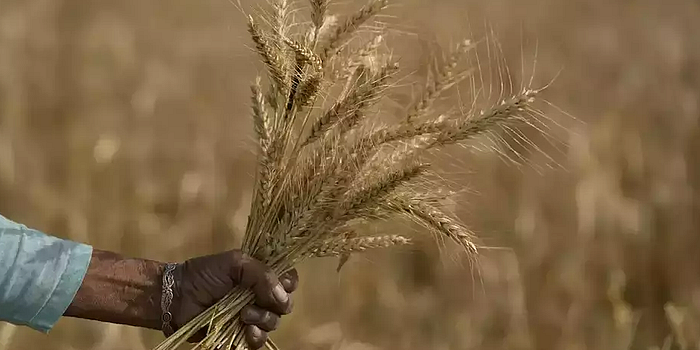
ADVERTISEMENT
ADVERTISEMENT






